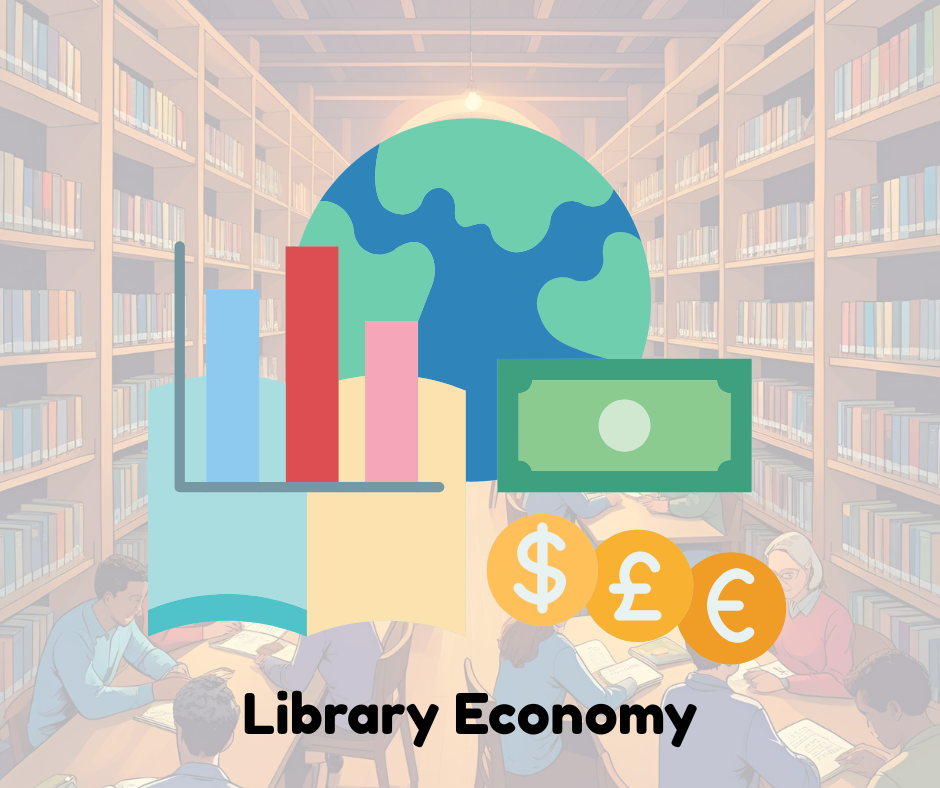The library economy represents a complex and dynamic economic ecosystem that focuses on the various ways in which libraries engage with, support, and derive sustenance from economic activities. This broad concept encompasses several critical dimensions, including funding models, the diverse services libraries offer, resource management strategies, job creation opportunities, and the quantifiable benefits that libraries provide to individuals and communities alike.
Below is a detailed exploration of the various components of the library economy:
1. Funding and Investment
Public libraries primarily rely on government budgets at various levels—local, state, or national—for their financial support. In contrast, academic and private libraries may draw on funding from educational institutions, grants, charitable endowments, and community donations. The investment in libraries is often considered a public good, yielding significant returns in areas such as education, workforce preparedness, and civic engagement. This financial backing illustrates a societal commitment to ensuring access to knowledge and resources for all.
2. Libraries as Economic Catalysts
Libraries play a pivotal role in stimulating local economies by serving as essential support systems for a diverse array of individuals, including job seekers, entrepreneurs, and students. They provide free access to invaluable digital resources, opportunities for skill development, and research assistance, fostering an environment conducive to learning and growth. Additionally, libraries work to mitigate inequality by offering free access to technology, information, and educational resources, thereby bridging gaps that might otherwise limit opportunities for marginalized populations.
3. Operational Economics
The day-to-day functioning of libraries involves careful management of budgets, staff salaries, collections, technological infrastructure, and physical facilities. Library administrators face the ongoing challenge of balancing cost-effective resource allocation with the mission of maintaining free public access to services and materials. This delicate balance is essential to their operational sustainability and community impact.
4. Cost Savings for Users
The value that libraries provide extends well beyond their physical or digital collections. By offering free access to books, media, training programs, internet connectivity, and community events, libraries generate substantial cost savings for individuals and families. This reduction in expenditures allows users to redirect their financial resources toward other needs, thereby enhancing their overall economic stability and contributing positively to the local economy.
5. Economic Impact Studies
Numerous studies have been conducted that utilize Return on Investment (ROI) models to assess and quantify the economic value of libraries. Findings often reveal a remarkable ratio; for every dollar invested in libraries, communities may receive multiple dollars in return through increased access to services and enhanced community well-being. Such studies reinforce the notion that libraries are not only centers of knowledge but also vital contributors to economic health.
6. Employment and Industry Support
Libraries serve as significant sources of direct employment, employing professionals such as librarians, IT staff, educators, and archivists. Beyond direct jobs, libraries also bolster related industries, including publishing, book distribution, technology services, and software development. By supporting these sectors, libraries reinforce the interconnectedness of their own operations with broader economic activities.
The library economy provides a comprehensive understanding of how libraries function within and contribute to the larger economic landscape. They offer both tangible financial value and intangible benefits, such as fostering education, promoting inclusion, and driving innovation. Through this multifaceted role, libraries emerge as indispensable pillars of community development and economic resilience.

Libraries serve as vital catalysts for local economies, making significant contributions in a number of impactful ways.
Here’s a closer look at their multifaceted role:
1. Workforce Development & Job Support:
Libraries act as essential hubs for workforce development by offering a suite of free resources tailored to empower job seekers. From specialized job search tools that streamline the application process to personalized resume workshops and interview preparation sessions, libraries equip community members with the skills and confidence needed to secure employment. Additionally, many libraries provide access to job training programs, ensuring that individuals can enhance their qualifications and adapt to the evolving job market.
2. Small Business & Entrepreneur Support:
Many libraries understand the challenges faced by small business owners and aspiring entrepreneurs. They offer invaluable resources such as extensive business databases, coworking spaces that foster collaboration, and workshops led by seasoned professionals. By providing access to crucial market research tools and networking opportunities, libraries help startups, freelancers, and small business owners not only survive but thrive in a competitive landscape.
3. Digital Access & Literacy:
In today’s technology-driven world, libraries play a critical role in bridging the digital divide. By providing free access to high-speed internet, computers, and comprehensive tech training programs, libraries empower individuals to engage in the digital economy. This access enables more community members to apply for jobs online, participate in remote work opportunities, and explore e-commerce avenues, thereby enhancing their economic prospects.
4. Property Value & Community Attraction:
The presence of well-maintained libraries significantly elevates the attractiveness of neighborhoods, positively influencing property values. As community pillars of knowledge and culture, libraries draw in new residents and businesses, enhancing the overall vitality of the area. They contribute to creating an informed, engaged, and well-educated populace, making the community even more appealing.
5. Cost Savings for Citizens:
Libraries are treasure troves of resources that offer significant cost savings to families. By providing free access to books, online courses, educational programs, and community services such as tax assistance, libraries can save households hundreds, if not thousands, of dollars each year. This financial relief allows families to allocate more of their earnings towards local businesses, thereby stimulating the economy.
6. Education & Youth Development:
Libraries play a crucial role in nurturing a culture of education and lifelong learning. They support early literacy initiatives, offer tailored homework help, and provide resources for ongoing adult education. These efforts lay the groundwork for a well-informed workforce, which is essential for sustained economic growth and community development.
7. Cultural & Event Tourism:
Beyond their educational and economic functions, libraries often emerge as cultural beacons in their communities. By hosting author talks, art exhibitions, and a variety of cultural events, libraries draw visitors from near and far. This influx of visitors not only enriches the community’s cultural landscape but also benefits local businesses such as restaurants, shops, and hotels that serve these attendees.
In summary, libraries transcend their traditional roles as mere repositories of books; they are dynamic, driving forces in local economies, providing support to individuals, businesses, and the community at large.



